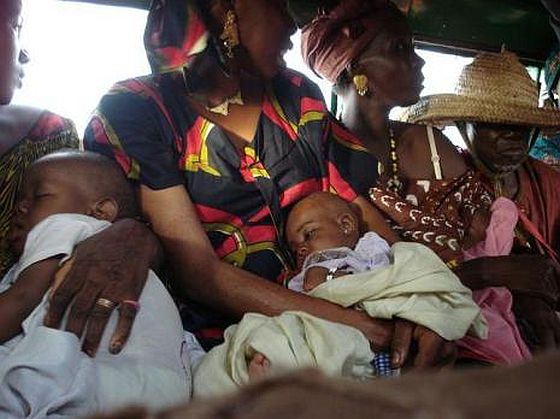
It’s easy for those of us living in so-called developed states to survey the turmoil across much of the developing or under-developed world and take a certain amount of comfort in our uneventful lives.
We might not consciously harbor conceits about the superiority of Western Civilization but nevertheless, the absence of social strife, relatively low crime rates, the abundance of material goods and services, well-funded university systems, access to advanced health care, relatively stable systems of government — all of these factors taken together evoke a sense that relative to much of the rest of the world, we live in reasonably healthy societies.
To the extent that we hold this perspective, we do so however while viewing society in a strangely skewed way. We treat the individual as the fundamental component out of which society is constructed and view the common good as the ability for the greatest number of individuals to fulfill their desires. But this isn’t what makes a society and it never will.
Consider instead another way of viewing the health of society: the way in which strangers relate to one another. By this measure one could argue — especially in America — that we don’t really live in a society.
More often than not, we are aggregations of individuals who minimize accidental interactions and for whom ‘stranger’ is a label that can be applied to most other people — people whose names we will never know and whose lives we only fleetingly glimpse. The stranger is the person who lives outside the sphere of our concerns.
There are other societies that don’t operate like this at all and where in a profoundly un-American way, the way in which strangers engage with one other is what makes society work.
The American anthropologist and Mali expert, Bruce Whitehouse cites an interesting anecdote recounted by another American living in Mali:
I was in a SOTRAMA (Mali’s take on the minibus, a green shell ringed with wooden benches, infinite division of space, unlimited passengers) the other day and I watched a guy scoop up a baby from the arms of a mother who was burdened with several bags and a large plastic bowl overflowing with toothbrushes and tubes of toothpaste.
After she climbed into the SOTRAMA and arranged her merchandise, she did not ask for her baby back. Her baby remained in the arms of a stranger, who was now smiling and laughing with the woman’s daughter on his lap.

Passengers inside a Bamako sotrama.
To an American eye, such an expression of trust between strangers might seem unfathomable. Indeed, those who knew nothing about the way Malian society works might regard this kind of behavior as an indication that Malian mothers have a carefree and irresponsible attitude about the welfare of their children. As Whitehouse explains, however, what this vignette captures is a fundamentally different view of what it means to be human — an orientation for which in Mali’s dominant Bambara language there is a word, Mɔgɔya.
Mɔgɔya expresses itself as:
a spontaneous familiarity found even among strangers, an eagerness to engage with other people socially in almost any situation. The Bambara word mɔgɔ means “person,” and you could translate mɔgɔya as “personhood,” but that wouldn’t tell the whole story. In Mali, as in much of Africa, the person is not reducible to the individual; mɔgɔya is expressed through social relations, which exist prior to the person. “It is only by means of social ties that one can achieve personhood,” writes anthropologist Saskia Brand in her ethnography of Bamako, Mediating Means and Fate. An individual human being does not necessarily qualify as a person because, as Brand notes, someone who is anti-social may not be considered a mɔgɔ.
I think of mɔgɔya as a parallel of social capital, something that constitutes a public good, and the decline of which in American society has been noted by social scientists like Robert Putnam. Whatever you call it, Mali has it in spades. For outsiders like me, everyday displays of mɔgɔya can lift the spirits. For Malians, mɔgɔya is what holds society together.
While the familiarity between strangers that Whitehouse describes could be viewed as culturally bound and romanticized as a vestige of ancestral roots particular to societies that have not ‘advanced’ far from their source, there is a way in which we can see social bonds and their dissolution as a direct product of material wealth.
Wealth breeds insularity. The more we have for ourselves, the less we need others.
On a spiral of autonomy, the more we free ourselves from the constraints of space and time in our fully networked world, the more bound we become to the company we can never escape yet rarely examine: our own.
And therein lies the contradiction in our development: that as we lose ourselves in things, we lose our humanity in the process.


Very interesting essay. I’ll pass it on.
“We treat the individual as the fundamental component out of which society is constructed and view the common good as the ability for the greatest number of individuals to fulfill their desires.”
That sums it up quite nicely, Paul. Another article of insight and example to emphasize it. Thanks.
Traditional or “tribal cultures” in Western eyes tends to have a lot of suspect negative moral and cultural ways of life that democracy with free markets and technology can clean up for them to become a part of the human race.
“However, this bias ignores that they have a reality that goes much deeper than the world of commodities and device paradigm – they have a spiritual center, a mode of tribal community and guidance- a means of being human.” (focal practice).Morris Berman from his book Dark Ages America.
Is it any wonder that the Western world latched on so quickly to Maggie Thatcher: “There is no such thing as society; there are only individuals.” It has become the doctrine of the sickly economic system of globalism.